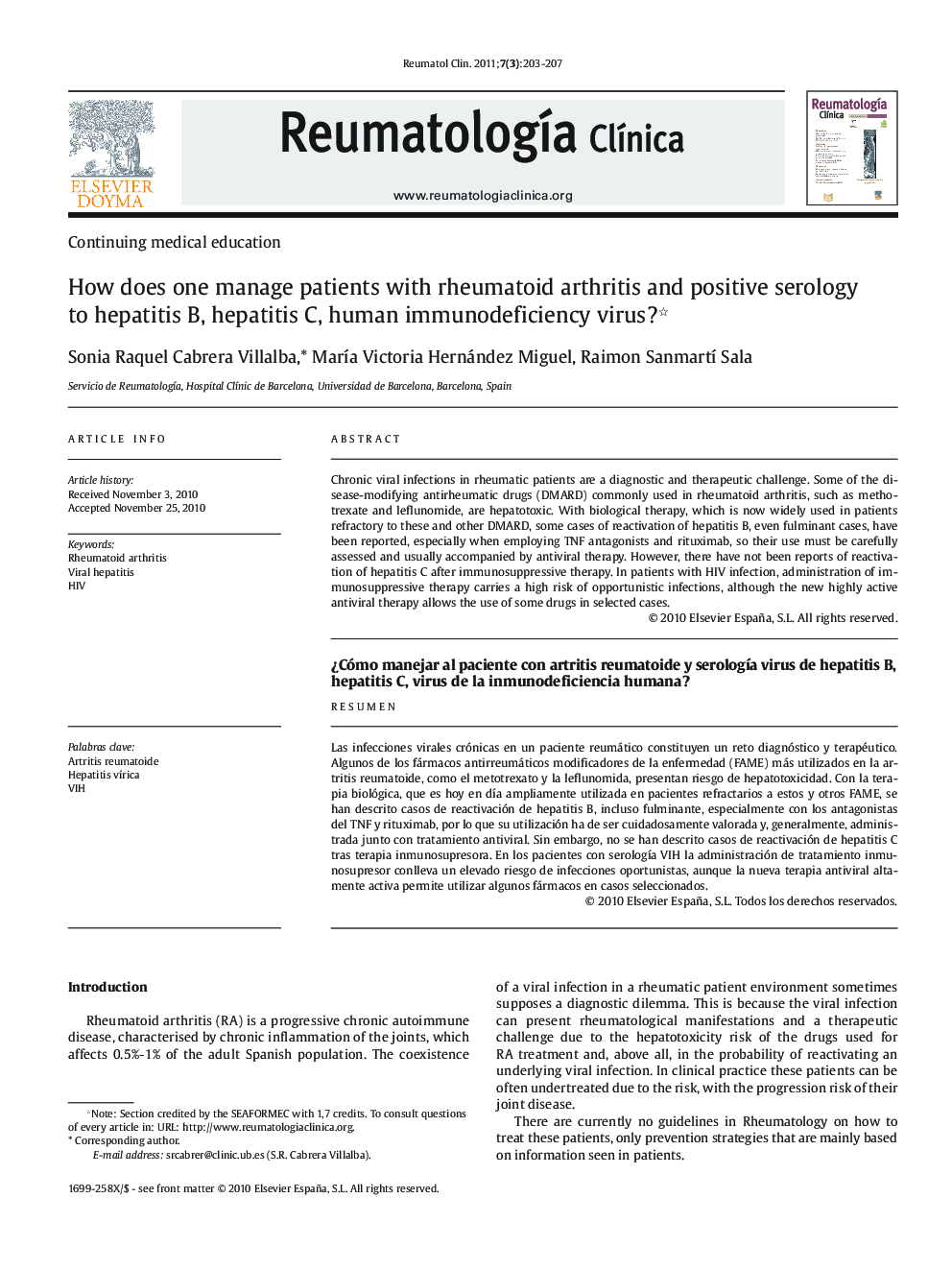| کد مقاله | کد نشریه | سال انتشار | مقاله انگلیسی | نسخه تمام متن |
|---|---|---|---|---|
| 3384633 | 1220540 | 2011 | 5 صفحه PDF | دانلود رایگان |

Chronic viral infections in rheumatic patients are a diagnostic and therapeutic challenge. Some of the disease-modifying antirheumatic drugs (DMARD) commonly used in rheumatoid arthritis, such as methotrexate and leflunomide, are hepatotoxic. With biological therapy, which is now widely used in patients refractory to these and other DMARD, some cases of reactivation of hepatitis B, even fulminant cases, have been reported, especially when employing TNF antagonists and rituximab, so their use must be carefully assessed and usually accompanied by antiviral therapy. However, there have not been reports of reactivation of hepatitis C after immunosuppressive therapy. In patients with HIV infection, administration of immunosuppressive therapy carries a high risk of opportunistic infections, although the new highly active antiviral therapy allows the use of some drugs in selected cases.
ResumenLas infecciones virales crónicas en un paciente reumático constituyen un reto diagnóstico y terapéutico. Algunos de los fármacos antirreumáticos modificadores de la enfermedad (FAME) más utilizados en la artritis reumatoide, como el metotrexato y la leflunomida, presentan riesgo de hepatotoxicidad. Con la terapia biológica, que es hoy en día ampliamente utilizada en pacientes refractarios a estos y otros FAME, se han descrito casos de reactivación de hepatitis B, incluso fulminante, especialmente con los antagonistas del TNF y rituximab, por lo que su utilización ha de ser cuidadosamente valorada y, generalmente, administrada junto con tratamiento antiviral. Sin embargo, no se han descrito casos de reactivación de hepatitis C tras terapia inmunosupresora. En los pacientes con serología VIH la administración de tratamiento inmunosupresor conlleva un elevado riesgo de infecciones oportunistas, aunque la nueva terapia antiviral altamente activa permite utilizar algunos fármacos en casos seleccionados.
Journal: Reumatología Clínica (English Edition) - Volume 7, Issue 3, 2011, Pages 203-207